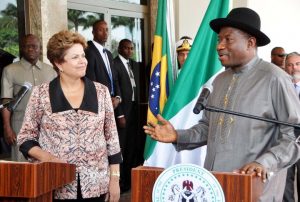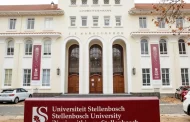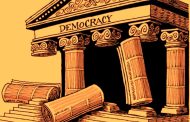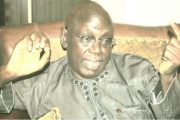A big drama is, indeed, playing out in Brazil, with world scale significance. The release of Luiz Inacio Lula da Silva from prison is the crashing of a strategy of undermining what he represents but a strategy which seems to have gone wrong, leaving its masterminds in utter deficit. It would be Lula’s second technical knock-out for neoliberalism in Brazil. But that is neoliberalism in its holistic sense as a technology of power by which the world can be re-regulated through discipline, circulation and control. In that sense, it is a much more frightening rule book than the economistic sense that most people associate with it. The first time was 2003 when there were extra plans on how to stop him. It didn’t work. He swept into power with the sort of policies that profit seeking big businesses do not normally favour, especially his Zero Hunger flagship of a social empowerment. But, not only did he ride out his term, he also ruffled global governance feathers with symbolic actions such as paying off Brazil’s debts and even lending the IMF money.

Locating Brazil in global space
Ordinarily, paying off a country’s debt is what creditors should applaud. But that is not how the international order of profit making works. For that system, the more indebted a potentially powerful country such as Brazil, Nigeria, India is, the great it is considered to be because it means its leaders and elite are vulnerable to dictation and blackmail. So, it was carrying radicalism to the extreme as far as the lords of the global manor were concerned when Lula not only paid off Brazil’s debts but also sent decentering signals to the IMF which manages vulnerability of countries through time honoured rationalities, tactics and models. The signal from Lula, as far as they were concerned, was that the guy was trying to follow the footsteps of China. China has been able to do what it has done because, among other reasons, it refrained from getting indebted to the international financial system. To add salt to injury, Lula reproduced himself in power without much internal acrimony. Dilma Rousseff, his Chief of Staff and someone with everything at stake succeeded him after his own two terms with basic guarantee of continuity.
He was no less active geopolitically, with the BRICS platform providing an extra-Atlantic global outreach for Brazil in the form of rising powers such as China, Russia and India. And it was in Brazil that Jacob Zuma enacted South African membership of the BRICS by an intuitive meeting with Hu Jintao at the end of one session of India-Brazil-South Africa, (IBSA) Dialogue Forum which was ending as a BRICS meeting was starting in Brazil. China saw a way-in into Africa in that and bought into it and South Africa’s membership of BRICS became a reality, not only completely contrary to the criteria listed by Jim O’Neill who imagined BRICS into being in the image of the restless investment banker but also making a complete nonsense of Samuel Huntington’s clashing narrative of post Cold War international security. Instead of clashing civilisations, four out of the eight civilisations Huntington listed – Catholicism, (Brazil); Confucianism, (China); Orthodox Church, (Russia); Hinduism, (India) and the candidate African civilisation, (South Africa) were converging and mixing. So, geopolitically, Lula was also in trouble for accessory to subversion of the dominant geopolitical narrative.

Was Lula jailed so that Bolsonaro could win in 2018?

Then President Dilma Rousseff who was impeached in 2016
In 2017 when he was sent to jail at last, it neither sounded nor looked right. How could this man who put hunger on the run have been this corrupt? Well, they said he was corrupt even though the people didn’t agree. In the end, the system had its way and a world that is not so hostile to injustice moved on or appeared to take it in its strides.
Two years later, everything appears to have crashed so badly, exposing the manipulations that attended his being sent to jail. “Serious, systematic and sustained improprieties by the Brazilian judicial officials who imprisoned Lula” have been published by The Intercept, said Glenn Greenwald, the Co-founding Editor of the news platform. What happens to incumbent Brazilian President, Jair Bolsonaro’s mandate after this moment is a subject of speculation. He might still remain in office but without any iota of legitimacy to carry on in a world in which ethics has been resurgent.
So, what might someone in Nigeria read into or learn from the unfolding epic in far away but close-by Brazil, given the many similarities between the two countries. Apart from practice of federalism, which is much more substantive in Brazil, the two are similar all the way down. Both lack internal consensus and, therefore, face the problem of how order may be maintained. Both Nigeria and Brazil have a history of a potent brew of nationalism, dictatorship, populism and developmental statism. This brew has worked better for Brazil than Nigeria, unfortunately. Both are highly unequal but highly mobile societies although Brazil has a legacy of historical inequalities which Nigeria doesn’t have.

Brazil and Nigeria in a previous picture

Vladimir Putin,Narendra Modi, Dilmar Rouseff, Xi Jinping & Jacob Zuma in a 2014 picture
Just as democracy has stayed in Brazil since 1985 so has it stayed in Nigeria since 1999 even as it is arguable if democracy in Nigeria has gone beyond procedural levels of regular elections and appointment of people to offices. The road to democracy in both countries share incredible similarities, with particular reference to the pattern of military withdrawal. There is a cultural dimension to the similarities in that both countries are uncomfortable with keeping to time. In Nigeria, there is allowance for ‘African Time’ which means no offence for people being late as much as three hours to a scheduled appointment. Elections are violent in both countries and the civil society remains unconstituted spaces in both. Geopolitically speaking, both are the respective regional Hegemons. ‘Naturally’, hegemonic advantage attracts envy and each of the two must have their own stories of how that dynamics plays out, year in, year out. Nothing so far has touched the share of black concentration in both countries.
With these similarities, events in Brazil are of importance in Nigeria and forces to the fore as many questions as imaginable. For instance, why does resistance to neoliberalism in Brazil assume a radical populist/developmental form in Brazil but takes ethno-regional forms in Nigeria? Why are the two basically same in several regards but with that exception? Why is neoliberalism losing grips in Mexico, Venezuela, Cuba and now Brazil but getting entrenched in Nigeria?
What is the dynamics of neoliberalism in Nigeria that, regime after regime in 20 years, there is no modicum of what Brazilians have got from democracy, be it under Cardoso from 1994 to 2012 and Lula from then to 2011 and Rousseff from then to 2016. Under Cardoso, big businesses were confronted with a critique of monopoly. Heavens did not fall! Subsidy for low income earners was pursued. Infant mortality got a shot up just as school enrolment did. And so and so forth! Lula upped the ante, dealing a crushing blow on hunger. Heavens did not fall!
Yes, they are two different countries with different historical, situational and regional challenges. But do those challenges mean a radical populist response is not an option worth trying in Nigeria? Why has that never reared its head except dead models and borrowed formulae? It cannot be all the success of neoliberalism. Of course, neoliberalism has lived in tandem to its billing with capacity for ‘creative destruction’ across the world but neoliberalism in China is not the same as neoliberalism in the Americas.



























